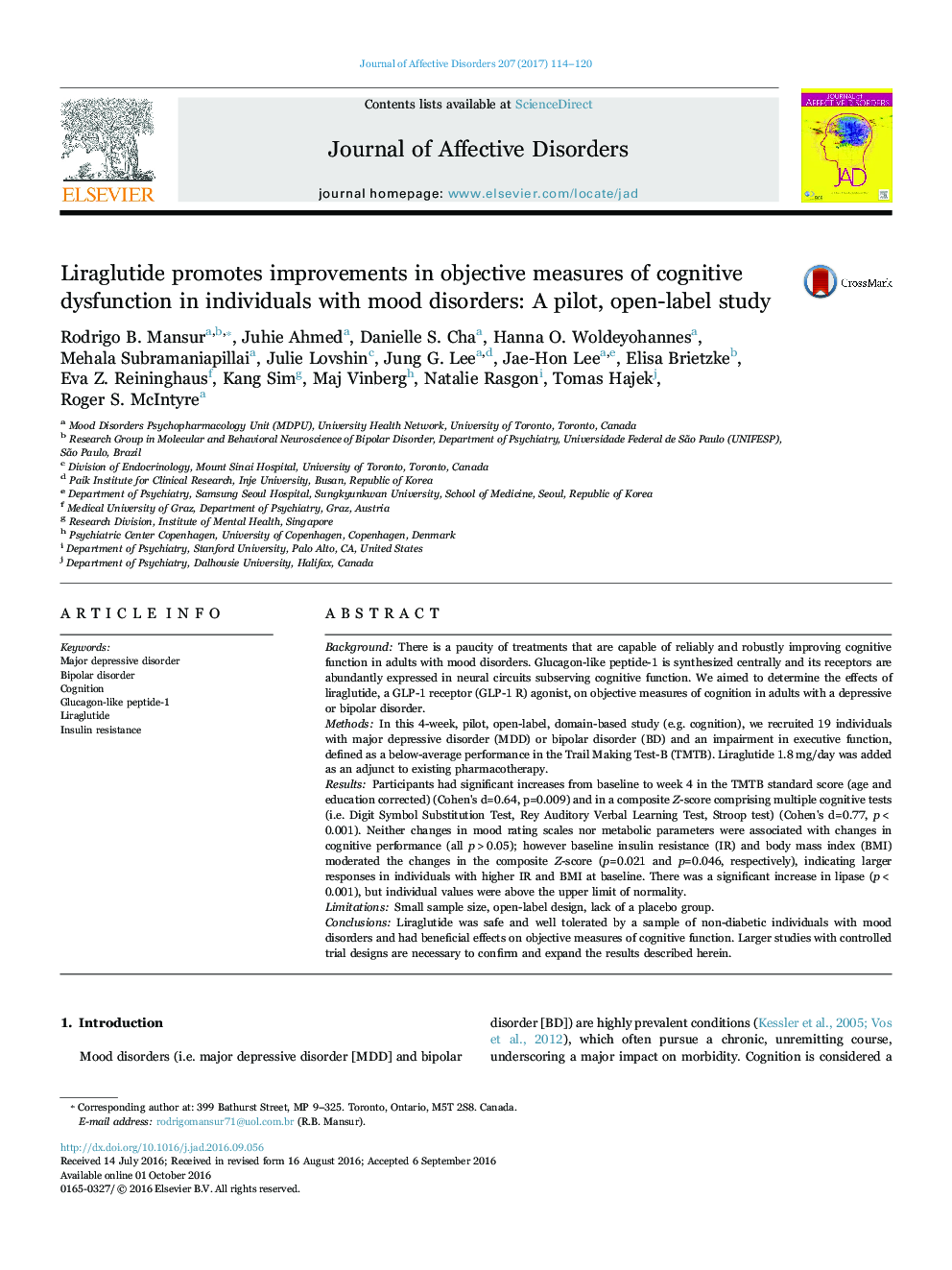| Article ID | Journal | Published Year | Pages | File Type |
|---|---|---|---|---|
| 6229482 | Journal of Affective Disorders | 2017 | 7 Pages |
â¢Cognitive deficits in mood disorders are highly prevalent and impactful.â¢Few interventions have evidence of pro-cognitive effects in mood disorders.â¢In this pilot study we explored the cognitive effect of a GLP-1 R agonist.â¢4-week treatment with liraglutide was associated with cognitive improvements.â¢Liraglutide was also safe and well tolerated by individuals with mood disorders.
BackgroundThere is a paucity of treatments that are capable of reliably and robustly improving cognitive function in adults with mood disorders. Glucagon-like peptide-1 is synthesized centrally and its receptors are abundantly expressed in neural circuits subserving cognitive function. We aimed to determine the effects of liraglutide, a GLP-1 receptor (GLP-1Â R) agonist, on objective measures of cognition in adults with a depressive or bipolar disorder.MethodsIn this 4-week, pilot, open-label, domain-based study (e.g. cognition), we recruited 19 individuals with major depressive disorder (MDD) or bipolar disorder (BD) and an impairment in executive function, defined as a below-average performance in the Trail Making Test-B (TMTB). Liraglutide 1.8Â mg/day was added as an adjunct to existing pharmacotherapy.ResultsParticipants had significant increases from baseline to week 4 in the TMTB standard score (age and education corrected) (Cohen's d=0.64, p=0.009) and in a composite Z-score comprising multiple cognitive tests (i.e. Digit Symbol Substitution Test, Rey Auditory Verbal Learning Test, Stroop test) (Cohen's d=0.77, p<0.001). Neither changes in mood rating scales nor metabolic parameters were associated with changes in cognitive performance (all p>0.05); however baseline insulin resistance (IR) and body mass index (BMI) moderated the changes in the composite Z-score (p=0.021 and p=0.046, respectively), indicating larger responses in individuals with higher IR and BMI at baseline. There was a significant increase in lipase (p<0.001), but individual values were above the upper limit of normality.LimitationsSmall sample size, open-label design, lack of a placebo group.ConclusionsLiraglutide was safe and well tolerated by a sample of non-diabetic individuals with mood disorders and had beneficial effects on objective measures of cognitive function. Larger studies with controlled trial designs are necessary to confirm and expand the results described herein.
